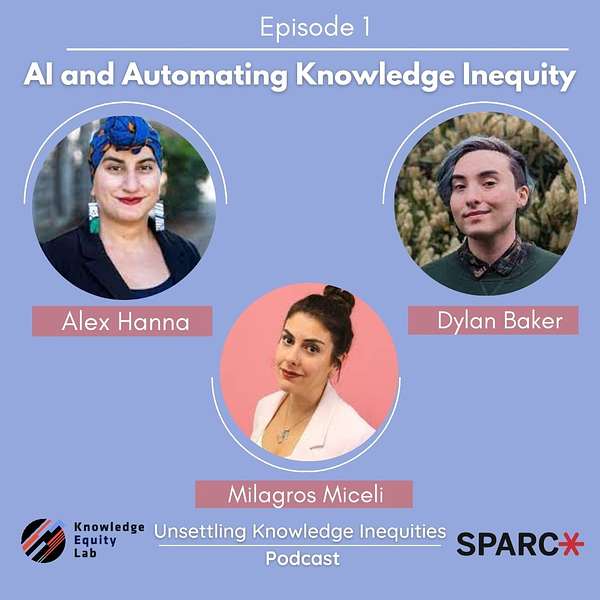
Unsettling Knowledge Inequities
Unsettling Knowledge Inequities
AI & Automating Knowledge Inequity
Use Left/Right to seek, Home/End to jump to start or end. Hold shift to jump forward or backward.
In our third season, we continue our goal of interrogating the politics of knowledge production, exchange and circulation - but with a special focus on exploring the implications of the widespread and often uncritical use of Artificial Intelligence and Machine Learning technologies. In particular we will examine how the use of these technologies by corporate publishers and data analytics companies can replicate and exacerbate existing structural and other forms of inequities in societies and in academia.
In this first episode, we are joined by colleagues from the Distributed AI Research Institute - Dr. Alex Hannah, Dylan Baker, and Dr. Milagros Miceli.
DAIR is an interdisciplinary and globally distributed organization rooted in the belief that AI is not inevitable, its harms are preventable, and when its production and deployment include more diverse perspectives and more deliberate processes, it can be beneficial.
Resources mentioned in episode:
- https://www.gapminder.org/dollar-street
- https://people.clarkson.edu/~jmatthew/publications/Wali_ParticipatoryML_ICML2020.pdf
- https://logicmag.io/beacons/the-oversight-bloc/
Other relevant resources:
- Datasets have Worldviews https://pair.withgoogle.com/explorables/dataset-worldviews/
- Measuring Diversity https://pair.withgoogle.com/explorables/measuring-diversity/
- Milagros Miceli, Tianling Yang, Adriana Alvarado Garcia, Julian Posada, Sonja MeiWang, Marc Pohl, and Alex Hanna. 2022. Documenting Data Production Processes: A Participatory Approach for Data Work. Proc. ACM Hum.-Comput. Interact. 6, CSCW2 (August 2022), 34 pages.https://arxiv.org/abs/2207.04958
- Gebru, T., Morgenstern, J., Vecchione, B., Vaughan, J. W., Wallach, H., Iii, H. D., & Crawford, K. (2021). Datasheets for datasets. Communications of the ACM, 64(12), 86–92. https://doi.org/10.1145/3458723